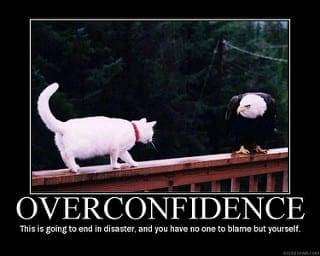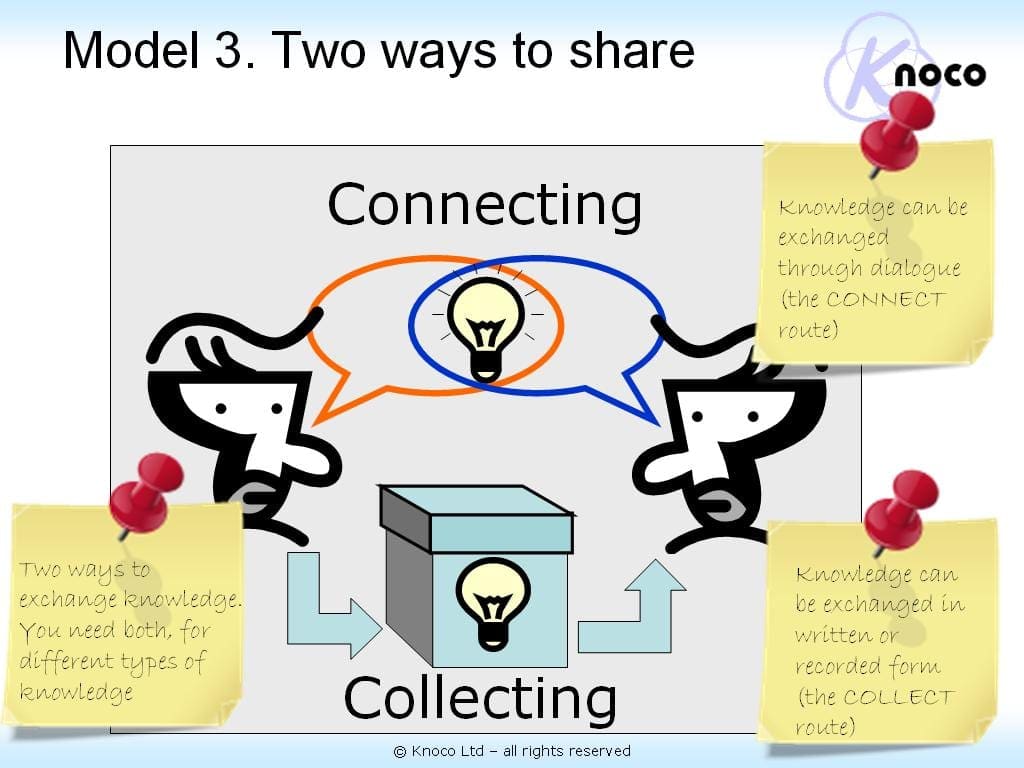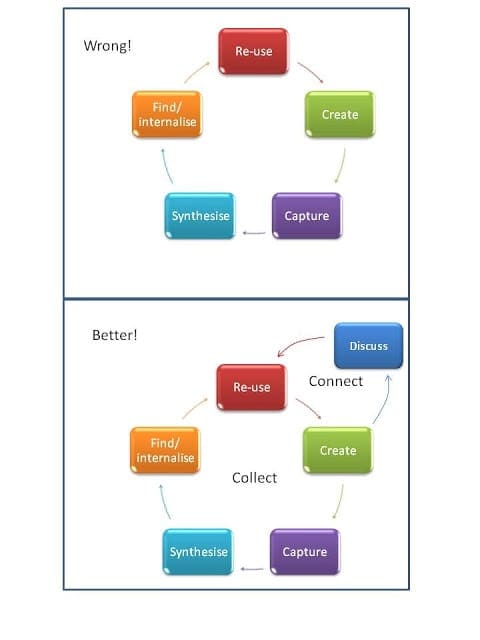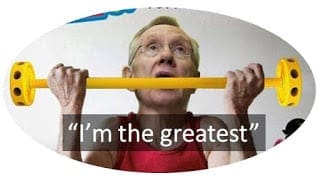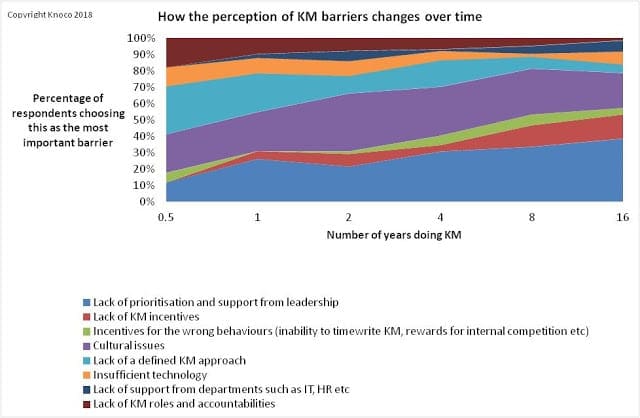
Favorite As our KM programs develop, our perception of the main barriers and enablers change Our Knowledge management surveys in 2014 and 2017, responded to by over 700 knowledge managers world wide, addressed (among many other things) the issues of barriers and enablers to KM programs. You can see the
Read More
 Shared by Nick Milton September 25, 2018
Shared by Nick Milton September 25, 2018

Favorite According to a recent blog post, KM is the human-centric response to the 4th technological revolution. Breaking Waves by Bernd Thaller on Flickr The blog post, entitled What explains the evolution of management models over the past two centuries? is from the Business Review of the London School of Economics,
Read More
 Shared by Nick Milton September 24, 2018
Shared by Nick Milton September 24, 2018

Favorite Unless knowledge is re-used, KM adds no value. Why is this final step so hard, and what can we do about it? Roger by ZapTheDingbat, on Flickr I was having a great conversation with a Knowledge Manager recently, who was grappling with the final, and most difficult, step in the
Read More
 Shared by Nick Milton September 21, 2018
Shared by Nick Milton September 21, 2018

Favorite KM should prioritise critical knowledge, but how do you tell what knowledge is critical? Any Knowledge Management strategy, system or approach should be based around, and focused on, the knowledge which is critical to an organisation. At one level, we need to focus on critical knowledge when piloting and
Read More
 Shared by Nick Milton September 20, 2018
Shared by Nick Milton September 20, 2018

Favorite When communicating about KM and its benefits, you need simplicity and lots of repetition! image by Ghozt Tramp from wikimedia commons Are you tired of repeating the same old Knowledge Management message within your organisation? According to an interesting article from Ramon Barquin and Chris Coleman, you may just have
Read More
 Shared by Nick Milton September 19, 2018
Shared by Nick Milton September 19, 2018

Favorite We often get hung up on treating knowledge as if it were impersonal pieces of content; instead let’s look at it as an interaction between supplier and user. Image from wikimedia commons All knowledge, if we think in terms of “Know-how” originates from people, and is re-used by people.
Read More
 Shared by Nick Milton September 18, 2018
Shared by Nick Milton September 18, 2018

Favorite Overconfidence is one of the most powerful cognitive biases that affects KM. Here is how to address it. un-overconfidence, by gene brooks, on Flickr Cognitive biases are the plague of Knowledge Management. They cause people to neglect evidence, to fail to notice things, to reinvent their memory, and to
Read More
 Shared by Nick Milton September 17, 2018
Shared by Nick Milton September 17, 2018

Favorite I mentioned Connect and Collect in yesterday’s blog as being two routes for knowledge flow, so I thought I would expand on these two in today’s post. One of the earliest models in the history of Knowledge Management, and one that sometimes seems to get forgotten, is that there
Read More
 Shared by Nick Milton September 14, 2018
Shared by Nick Milton September 14, 2018

Favorite Here is another post from the archives, this one on the problem with so many simple KM loop cycles. I have lost count of the number of Knowledge Management lectures, strategies, introductions and other material I have seen, which somewhere along the line have presented a single loop model
Read More
 Shared by Nick Milton September 13, 2018
Shared by Nick Milton September 13, 2018

Favorite KM self-assessment often gives false results, as people frequently don’t know what “good” looks like. knowledge management assessments for clients, we often run into something we call “overconfidence through ignorance”, where someone will rank themselves good at something when they are really very poor, just because they have no
Read More
 Shared by Nick Milton September 12, 2018
Shared by Nick Milton September 12, 2018
![]() Shared by Nick Milton September 25, 2018
Shared by Nick Milton September 25, 2018






